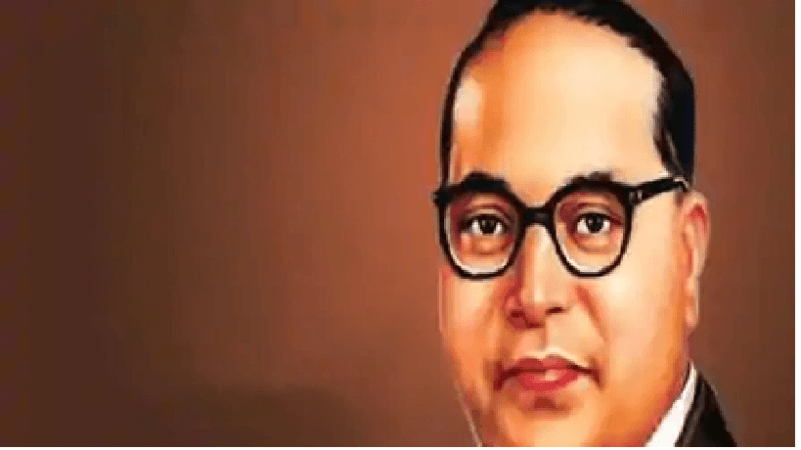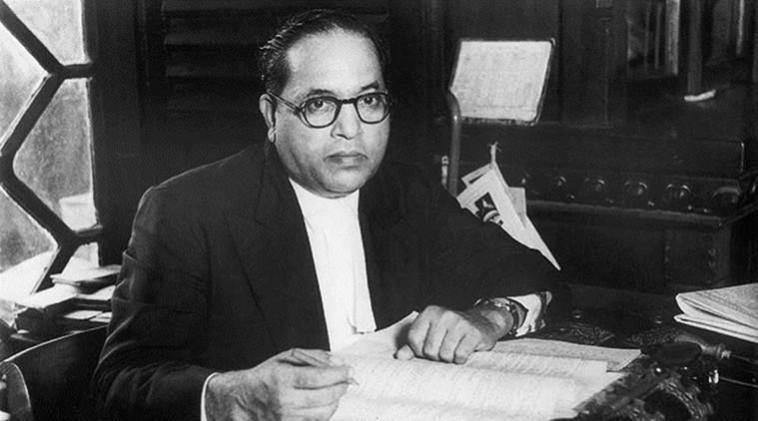Ambedkar Jayanti also is known as Bhim Jayanti, marks the birth anniversary of Dr Bhimrao Ambedkar or Dr BR Ambedkar.
Known as Babasaheb, Ambedkar is regarded as the Father of the Indian Constitution. He was born on 14 April 1928 in Pune. The principal architect of the Constitution of India, Dr Ambedkar was bestowed with the country's highest civilian honour – the Bharat Ratna.

Who was Dr. BR Ambedkar?
Dr. Ambedkar was not only one among the founding fathers of the Republic of India but also an Indian jurist, economist, politician and social reformer. He was a campaigner against the social discrimination towards the untouchables, Dalits.
Ambedkar being himself a Dalit, had faced a lot of hardships for being underprivileged in a society ruled by the upper-class pureblood. He was the only Dalit student at the Elphinstone High School in 1897 and had to face many forms of discrimination throughout his childhood.
These experiences since childhood and the life long suffering from his fellow men spearheaded Ambedkar in launching a campaign later, to protect the rights of the poor, downtrodden and those belonging to lower castes or the so-called scheduled castes.

Albeit the stone throws, Ambedkar succeeded in pursuing highly qualified degrees. He completed his studies from the University of Mumbai, Columbia University and London School of Economics.
In his later life, Ambedkar was much influenced by the principles of Buddhism and embraced the religion on October 14, 1956.
Ambedkar passed away on December 6, 1956, in New Delhi where he was accorded a Buddhist cremation. He was posthumously conferred with Bharat Ratna in 1990.
A vigorous supporter of women and labour rights, Ambedkar was the first law and justice minister of Independent India.
Significance of the day
On his 129th birth anniversary, Ambedkar is remembered for his efforts in framing the most well-structured constitution quintessential for such a diverse country like India.

One among the founding members of the Indian Constitution Assembly, Ambedkar was the key figure who led the Herculean task of drafting the world's largest constitution.
Declared as an official public holiday in 2005, Ambedkar Jayanthi is celebrated annually to remember the birth anniversary of India's most acclaimed lawmaker and social reformer. The day commemorates Dr. BR Ambedkar and his contribution to the making of India as a republic.
Moreover, his efforts to curb social discrimination against Dalits hold much significance even today. Albeit the entire social reform measures and laws in the Constitution that guide and protect the marginalised and scheduled caste people; assaults and attacks, including lynching against these minorities, continue in the country.
Floral tributes are offered to Babasaheb's Statue in the Parliament House Complex as well as in other places as a token of respect to the Constitution maker.

Here are a few quotes to remember the great leader and reformer on his 129th birth anniversary:
- "If I find the constitution being misused, I shall be the first to burn it."
- "I measure the progress of a community by the degree of progress which women have achieved."
- "Freedom of mind is the real freedom. A person, whose mind is not free though he may not be in chains, is a slave, not a free man."
- "In politics, we will be recognizing the principle of one man one vote and one vote one value. In our social and economic life, we shall, by reason of our social and economic structure, continue to deny the principle of one man one value."
- "I like the religion that teaches liberty, equality and fraternity."
- "Unlike a drop of water which loses its identity when it joins the ocean, man does not lose his being in the society in which he lives. Man's life is independent."
- "One whose mind is not free though alive is no better than dead. Freedom of mind is proof of one's existence."
- "Life should be great rather than long."
- "Though, I was born a Hindu, I solemnly assure you that I will not die as a Hindu"
- "The religion of Buddha has the capacity to change according to times, a quality which no other religion can claim to have... Now, what is the basis of Buddhism?"
















